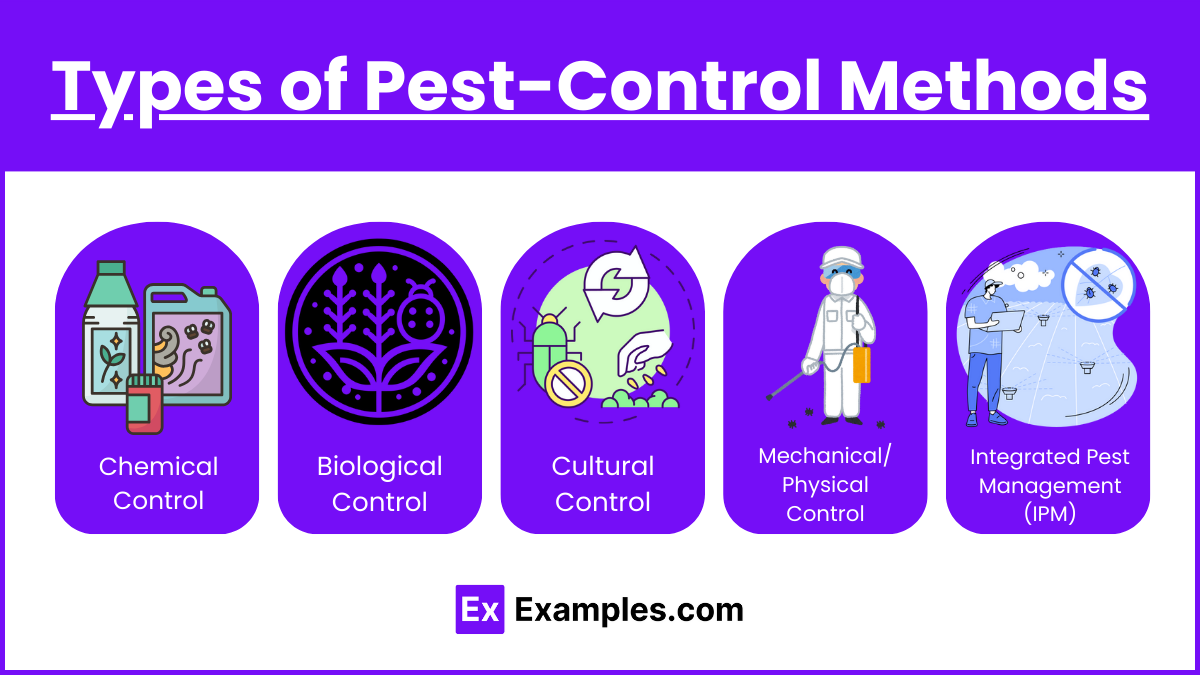The smart Trick of Pest Control That Nobody is Talking About
Table of ContentsThe smart Trick of Pest Control That Nobody is Talking AboutThe Of Pest ControlSome Ideas on Pest Control You Need To KnowWhat Does Pest Control Mean?Rumored Buzz on Pest Control
Limitations of Chemical Monitoring Be able to analyze bug troubles, determine if management is necessary, and make suitable referrals using IPM techniques. Recognize with different techniques of insect administration - their advantages and restrictions. Understand the worth of beneficial bugs. It is not possibleor even desirableto rid yards of all insects.This phase goes over (IPM), a technique that uses understanding about parasites and their, practices, nonchemical approaches, and chemicals to take care of parasite issues. Additional details concerning IPM for certain plants is consisted of in chapters that focus on those plants. Nonchemical insect control steps are worried in chapter 17, "Organic Horticulture." Managing birds and animals is covered in chapter 20, "Wildlife." Taking care of in the lawn and yard is covered in phase 6, "Weeds." Pests in a yard or landscape might consist of pests and mites, weeds,, mammals, and birds.
Pests and weeds, however, play a role in the. After growing a garden or establishing a grass, the natural process of plant succession starts to improve and nonnative plants.
What we call "insects" are part of a natural system at work. Just people take into consideration particular types parasites when they take place where they are not wanted.
Pest Control Fundamentals Explained
Bugs prone to a pesticide were quickly killed, leaving resistant ones to reproduce and increase. It became clear that pesticides alone would not resolve all parasite problems.
An IPM strategy allows some degree of insects in the atmosphere. Parasites are much less most likely to make it through a program that makes use of various techniques of minimizing their populations. Integrated parasite administration was very first recommended by entomologists due to the fact that insects were the very first team of pests to verify tough to take care of with chemicals alone.
A limit is the factor at which activity need to be taken. IPM has extended past pests to management of all pest populations: weeds, illness microorganisms, and mammals.
Pest Control - Truths
Administration instead than elimination of insects is the objective. An IPM plan starts with a cautious analysis of each parasite infestation. Just after that can one choose about the appropriate techniques required to reduce parasite tasks. The life process of the parasite, feasible damages, all-natural opponents, and effects of weather, amongst various other elements, are thought about before a control strategy is applied - Pest Control.
Clover expanding in a yard may be deemed an undesirable weed, yet as a legume it is manufacturing nitrogen for the soil and the flowers are giving nectar to honey and other. Resistance for some weeds may belong to an IPM strategy. may be eating the leaves of a plant, however when they are determined as the larvae of Eastern tiger swallowtail butterflies, their damages may be tolerated so we can enjoy the lovely butterfly.

The second most important device in pest management is very early treatment. Reacting to problems promptly, prior to they have time to multiply, calls for a much less dramatic intervention.
Things about Pest Control
Several risk-free, useful, nonchemical techniques of plant security and parasite monitoring may reduce or eliminate the demand to spray. Other techniques are most useful when used with pesticides. To execute administration techniques properly and to lessen losses, gardeners should be aware of the Website kinds of insects that strike plants and understand pest biology.

Carrying out a soil examination and applying only the advised quantity of plant food and lime takes full advantage of the advantage to the plant while minimizing issues see this site connected to excessive use fertilizer - Pest Control. Covering the soil with a number of inches of mulch shields the plant in numerous ways: lowering dirt water loss to dissipation, minimizing weed competition, giving nutrients, and developing an ideal environment for earthworms and bacteria that keep the soil loosened for origins and damage down organic material to release nutrients
If mulch touches the trunk, it can create a method for voles, bacteria, and fungi to strike the plant. Do not utilize manure or garden compost that has actually not thoroughly disintegrated as a leading dressing since it can motivate undesirable bugs. Research recommends that farming is harmful to dirt structure.
The Pest Control Statements
If tilling is regarded necessary, consider doing it in the fall when the life cycles of numerous insects brings them near the surface area. At the surface, bugs become revealed to the climate as well as birds and other all-natural adversaries.